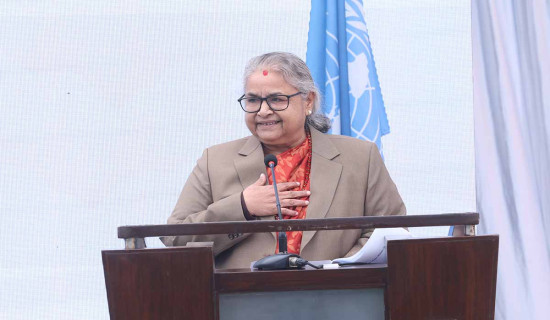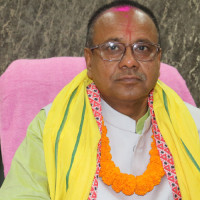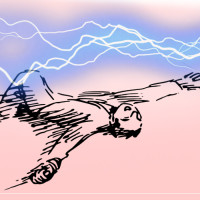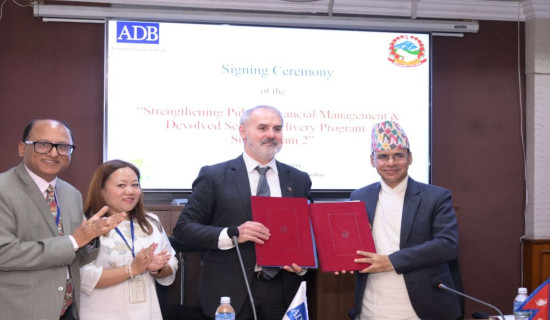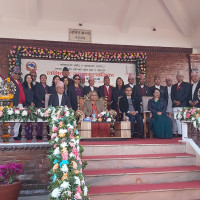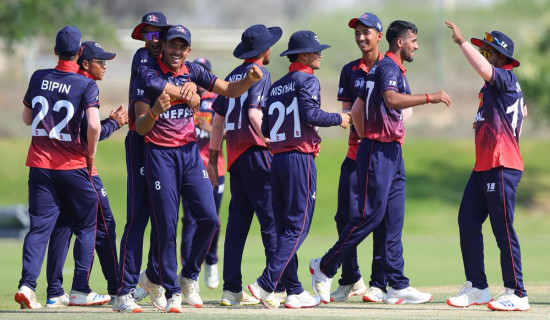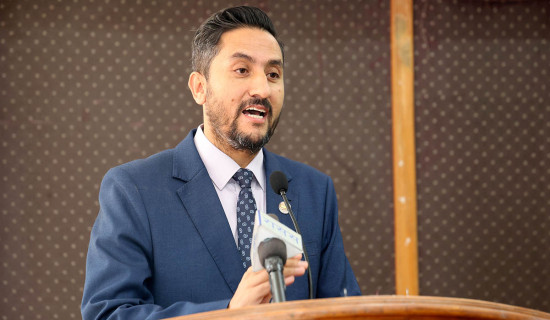- Wednesday, 17 December 2025
Dengue outbreak looms ahead of Dashain festival
By Pallav Bhusal,Kathmandu, Sept. 27: As the Dashain festival approaches, an estimated 1.8 million people are expected to leave the Kathmandu Valley, resulting in a significant surge in travels and gatherings across the country.
However, public health officials are raising alarms about the potential dengue outbreak coinciding with the festive season. The Department of Transportation has issued 20 directives to ensure safe and hassle-free travel; health experts warn that neglecting dengue precautions could lead to serious consequences.
Dr. Prakash Budhathoki, spokesperson for the Ministry of Health and Population, confirmed that dengue fever has spread to all districts in Nepal except Jumla. “As of September 23, there have been 12,644 confirmed cases of dengue in 76 districts, with six reported fatalities,” said Budhathoki. “The public must remain vigilant, especially as people travel during Dashain, which could further exacerbate the situation,” he added.
The current dengue outbreak is alarming, particularly as it coincides with a period when millions will be congregating for celebrations. The Epidemiology and Disease Control Division (EDCD) has reported that Kaski holds the highest number of confirmed cases, followed closely by Tanahun, Kathmandu, and Parbat. Kaski has seen 1,903 confirmed cases, while Kathmandu has recorded 1,540.
The EDCD has confirmed that dengue has affected various provinces disproportionately, with the highest numbers in Gandaki, Bagmati, and Koshi. In the Gandaki Province alone, there have been 5,971 confirmed cases.
“As we head into Dashain, we urge local governments and communities to take proactive measures to combat the spread of this disease,” said Budhathoki.
Dengue fever is transmitted through the bite of infected Aedes mosquitoes, primarily Aedes aegypti and Aedes albopictus, which breed in stagnant water, a common occurrence during the rainy season. Symptoms of the disease include high fever, severe headaches, joint pain, and general discomfort. In severe cases, known as the Critical State, patients may experience a drop in platelet counts, leading to plasma leakage and potential organ failure.
“Dengue is a significant public health challenge, and we have observed a surge in cases since 2010. Last fiscal year, we recorded dengue cases throughout the year, which highlights the need for ongoing vigilance,” said Budathoki. He also noted that the government has allocated substantial resources for preventive measures, including
Rs. 80 million to local levels and Rs. 20 million to district offices to control the disease.
In light of the escalating situation, the government has launched awareness campaigns, training more than 1,000 medical professionals on how to manage dengue cases. “We are utilising various platforms, including press releases and voice messages through Nepal Telecom, to inform the public about prevention and early detection,” said Budathoki. “It is crucial that communities engage in cleaning their surroundings to eliminate potential mosquito breeding sites,” he added.
Despite these efforts, there appears to be a lack of urgency in addressing the dengue crisis. “While we have seen only 12,644 cases so far this year, previous years recorded over a hundred thousand infections during this time,” said Budathoki. “The six fatalities reported were individuals with chronic diseases, underscoring the need for targeted interventions,” he added.
Authorities are employing a dual strategy to combat the outbreak. The first involves the destruction of dengue larvae with the help of local representatives and local clubs, and the second includes mobilising rapid-response teams trained to manage patient care effectively. “We are actively seeking and destroying mosquito breeding sites. This proactive approach is vital, especially with the increase in travel during Dashain,” said Budathoki.
As people prepare for the celebrations, Dr. Budhathoki implores the public to prioritise health and safety. “We must not overlook the threat of dengue. Keeping our environments clean and reporting any case early can significantly reduce the risk of outbreaks. The public’s cooperation is essential in combating this vector-borne disease,” he said.
With the holiday season approaching, the intersection of travel and the dengue outbreak presents a formidable challenge for public health in Nepal. Experts stress the importance of adhering to safety guidelines and remaining vigilant to protect not only individual health but also the wider community during this festive period. As the government ramps up its response, the collective effort of all stakeholders will be crucial in checking the spread of dengue and ensuring a safe Dashain for everyone.



